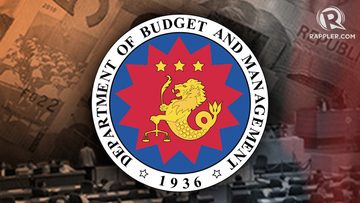SUMMARY
This is AI generated summarization, which may have errors. For context, always refer to the full article.

MANILA, Philippines – Reconsider the decision to scrap the Bottom up Budget (BuB) program.
This was the appeal of the Caucus of Development NGO Networks (CODE-NGO) to Budget Secretary Benjamin Diokno after he announced the Duterte administration’s plan to drop the expanded version of the program.
In a news briefing on Thursday, Juy 14, Diokno said that BUB in its present form would be discontinued. He added that the program was “politicized by the previous administration.”
The program “enabled local civil society organizations (CSOs) and local government officials to jointly identify priority anti-poverty projects which would then be included in the budget of the national government agencies,” said CODE-NGO executive director Sixto Donato Macasaet.
According to Macasaet, BUB promoted people’s participation and allowed communities to identify projects to be included in the budget of national government agencies.
The BUB originally covered only the poorest municipalities, but has since been expanded to include other areas as well. Diokno wants to revert it to the original area of coverage, as envisioned by the late interior secretary Jesse Robredo.
In April 2016, the budget department, then headed by Secretary Florencio Abad, announced that funding for 2017 BUB-proposed projects reached P35 billion. The program has funded about 14,325 projects from 1,514 cities and municipalities.
Under the BUB, each municipality and city is allocated at least P15 Million a year for priority anti-poverty projects in their area. These projects are identified by a Local Poverty Reduction Action Team (LPRAT), half of the members of which comes from local government officials and the other half comes from local CSOs. The local CSOs are elected by an annual assembly of CSOs active in the municipality or city.
Macasaet urged Diokno to conduct a thorough review of the program before it is scrapped.
“Local governments and local CSOs should also have a say on how the national government allocates its budget. They should not be limited just to their IRA allocations,” Macasaet said.
They are not alone in this call. The representatives of 14 sectors under the National Anti-Poverty Commission are also pushing for the continuation of the program in its present form.
They are meeting new NAPC convenor Liza Maza on July 20 to present a resolution requesting President Rodrigo Duterte to sustain the program that has been expanded to include almost all towns and, eventually, villages. – With a report from Raisa Serafica/Rappler.com
Add a comment
How does this make you feel?
There are no comments yet. Add your comment to start the conversation.